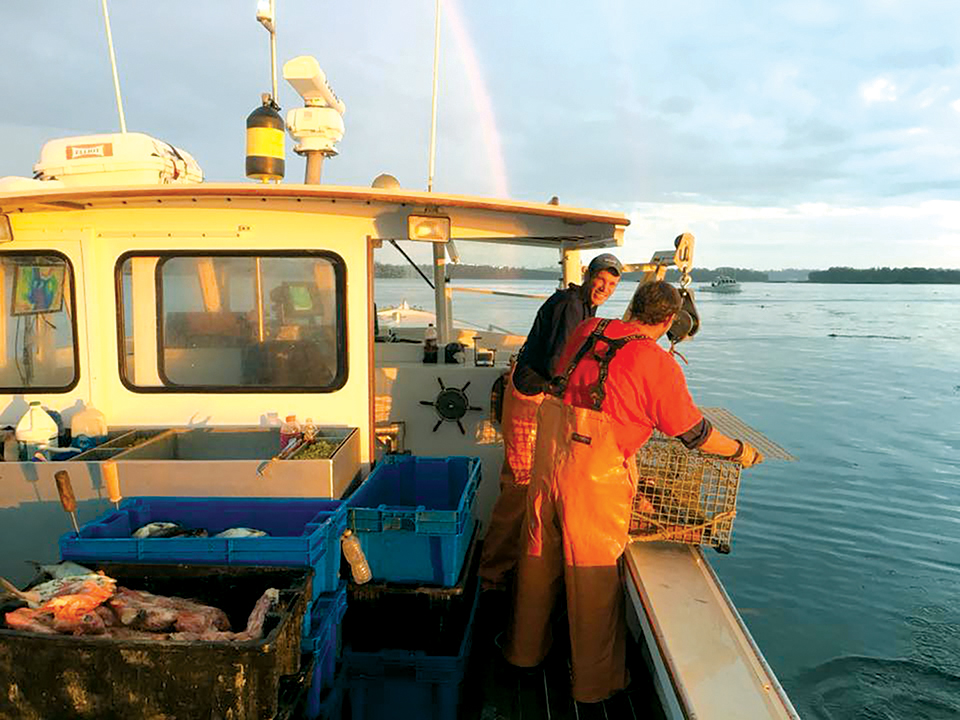Maine’s congressional delegation issued a letter this week to NOAA's acting director in an effort to clarify the agency's mission and goals for right whale protections.
Maine's lobster industry stakeholders have concerns about the federal data tool used to establish levels of risk, varying standards for risk reduction, and sharing the burden of whale protection by enlisting Canadian fisheries to adopt similar management measures.
Following an April meeting of the Atlantic Large Whale Take Reduction Team, Maine lobster officials agreed to reduce vertical trap lines by 50 percent and overall risk to right whales by 60 percent, with the understanding that other state-run fisheries would make the same commitment to overall risk reduction.
 However, not all fishing areas are using the same standards to reduce risk.
However, not all fishing areas are using the same standards to reduce risk.
"While lobstermen and regulators in Maine have put forward a plan to reduce the fleet's vertical lines by 50 percent thus demonstrating their strong, long-standing commitment to responsible stewardship, we are concerned that some of the proposals put forth by other jurisdictions appear to be insufficient," wrote Sens. Susan Collins (R) and Angus King (I) and Reps. Chellie Pingree (D) and Jared Golden (D) in a letter to Neil Jacobs, acting director for NOAA, dated Tuesday, May 28.
Massachusetts has listed an area closure already in place as a component of its plans for further reducing risk, while Maine's 50 percent line reduction is a significant and wholly new gear management measure.
Another complicating factor is the nearby fishing grounds of Atlantic Canada, which are not regulated by the same standards. Warming waters have invited right whale migration into Gulf of Saint Lawrence lobster and snow crab trap fishing areas, which caused a spike in right whale interactions and fatalities. These fleets are just beginning to grapple with risk reduction, while their U.S. counterparts have been actively reducing risk for more than a decade.
"We believe that the risk reduction target and management measures used to reduce risk to whales should more accurately reflect the proportion of entanglements seen in the data related to each country," the letter said.
Further complicating the issue is a lack of trust in NMFS' Decision Support Tool, which was based on a poll of the Take Reduction Ream, as the letter points out, rather than using existing datasets.
Maine's delegation has requested that NMFS put its risk-assessment tool through peer review, which sets a quality standard for data collection used to establish new management measures.
In the meantime, Pat Keliher, director of Maine's Department of Marine Resources, will move ahead on devising whale protection plans with the state's lobster license holders through zone meetings to be held along the coast in June.
"I’m committed to working with industry to guide the development of a plan to present to the National Marine Fisheries Service that is informed by your unique knowledge and insight," wrote Keliher in a letter to industry stakeholders published on May 29.







